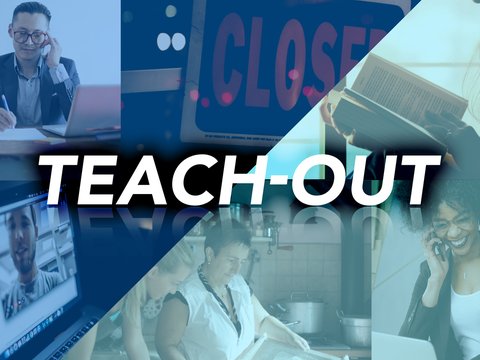Why you should ask for help now
Reciprocity is the idea that you help a friend and, in turn, the friend helps you, but bigger than that, it also means paying it forward to help others. Hear from Wayne Baker, the Faculty Director of the Center for Positive Organizations and the Robert P. Thome Professor of Business and Professor of Sociology, how this can help us as a community. Plus, he shares why you should be asking for help. This video is from the Thrive in Trying Times Teach-Out, check it out here.
Excerpt From

Transcript
0:00 hi my name is Wayne Baker I'm the 0:02 faculty director of the Center for 0:05 positive organizations at the University 0:07 of Michigan Ross School of Business I 0:10 study generosity values reciprocity and 0:14 positive organizational scholarship so 0:17 if you helped a friend and a friend 0:20 helped you in return then the two of you 0:22 would be practicing what we call 0:24 reciprocity suppose your friend didn't 0:26 help you after you helped your friend 0:28 you'd be pretty upset the reason is that 0:32 your friend violated the principle of 0:34 reciprocity 0:35 now reciprocity is one of the most 0:38 powerful fundamental human principles 0:41 there is this principle is a part of 0:43 every group in every society we 0:46 experience it we experience it in our 0:48 daily lives but this form of reciprocity 0:51 you help me and I help you isn't the 0:54 most powerful form of reciprocity the 0:57 most powerful form is what we call 0:59 generalized reciprocity think of it as 1:02 pay it forward where gratitude drives 1:04 paying it forward so you helped me and 1:07 I'm more likely to help you but I also 1:10 feel grateful for the help I received 1:11 then I pay it forward and I help a third 1:14 person who helps a fourth and a fifth 1:16 and eventually all comes back around to 1:18 us that's generalized reciprocity now 1:22 this form of reciprocity operates in a 1:24 network of connections it spreads and 1:27 help it spreads help and resources 1:29 throughout the network it's the way we 1:31 get the resources we need to be 1:33 productive creative and happy now we 1:36 might assume that the biggest barrier to 1:39 reciprocity is that people are are 1:41 unwilling or unable to help but that's 1:44 not the case what we found is that 1:46 people are generous they're very willing 1:48 to help the real problem is getting 1:50 people to ask for what they need the 1:53 request is the catalyst that really 1:56 drives the whole giving and receiving 1:58 process you can think of giving and 2:00 receiving as two parts of one cycle 2:02 there's no giving without receiving no 2:05 receiving without giving and nothing 2:07 happens until someone makes a request 2:10 you're not a mind reader you can't 2:12 figure out what someone wants in 2:13 till they actually tell you what they 2:15 need the biggest barrier to asking for 2:17 what you need is often the assumption 2:20 that you feel that people will think you 2:23 are incompetent or you can't do your job 2:25 or you're weak or you're ignorant here 2:28 the research can be very helpful for 2:29 updating and correcting that belief the 2:33 research shows that as long as you make 2:34 a thoughtful intelligent request people 2:38 will think you are more competent not 2:40 less 2:41 now the coronavirus crisis has thrown 2:44 our lives out of kilter most of us are 2:46 working at home now all alone so now 2:50 more than ever it's critical to reach 2:52 out and ask for what you need 2:54 it could be accurate information it 2:57 could be an expert you need to talk to 3:00 it could be just emotional support or 3:03 someone to to lend you a helping hand no 3:06 one can help you unless you ask and when 3:09 you ask you'll discover that people are 3:11 extremely generous now the best position 3:15 to be is what I call a giver requester 3:18 this is the person who generously helps 3:21 other people and they make requests when 3:24 they have a need for information for 3:26 ideas for an expert for a connection or 3:29 referral whatever it might be so what I 3:32 urge you to do is to take two actions 3:34 the first is to look for opportunities 3:37 to help other people look for people in 3:40 need you might have to ask a few 3:42 questions in order to learn what they 3:44 need and then think about how you can 3:46 help them perhaps you've got the 3:47 resource or the answer and you can share 3:49 it with that person or you can tap your 3:51 network and make an introduction to that 3:54 person the other part is to ask for what 3:57 you need 3:57 remember it's the request that drives 4:00 the whole process of reciprocity and 4:02 generosity so our urge you to do both to 4:05 be generous and to ask for what you need